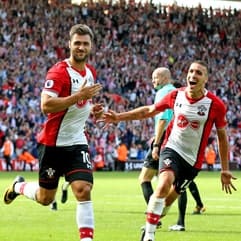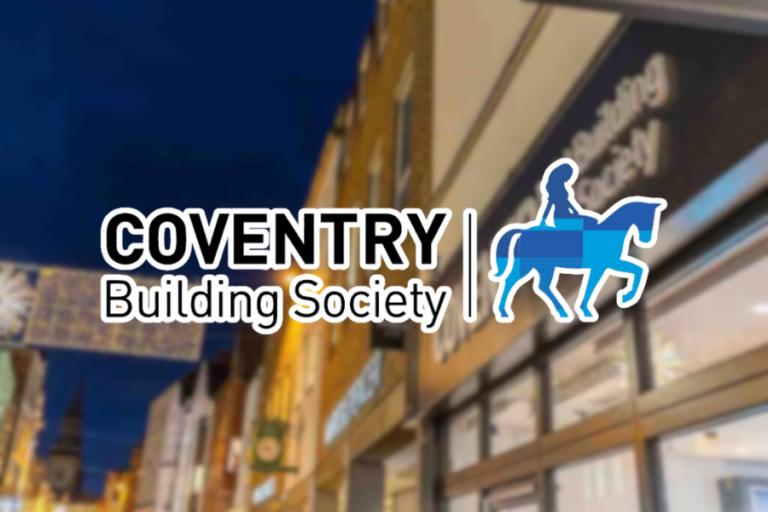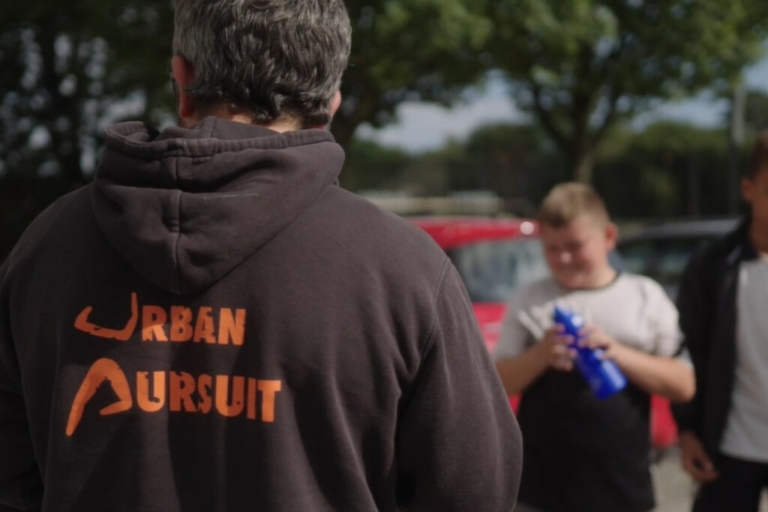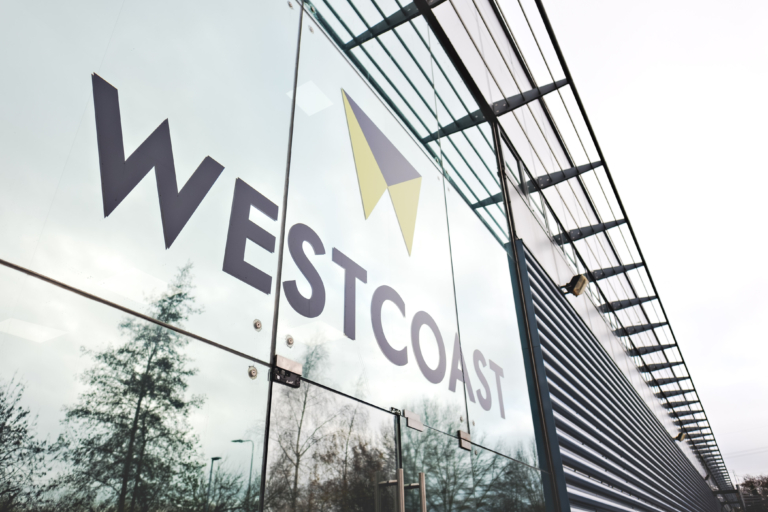Paris Smith marches in with the Saints

As part of Paris Smith’s 200th anniversary celebrations The Business Magazine looks at the firm’s work with some of its major clients. Paris Smith was on the ball with Southampton Football Club when it moved to a purpose-built stadium in 2001.
One of the more unusual legal aspects Paris Smith had to resolve before Premier League club Southampton could move from The Dell to St Mary’s involved delicate negotiations of a heavenly nature.
British Gas owned the land for the new stadium, but an arcane covenant in favour of the Church of England forbade the use of religious terminology in connection with the site. That would have been a bit of a problem for a club nicknamed the Saints that wanted to call its stadium St Mary’s.
Complex negotiations
Attention to details like this is essential in the complex world of property and commercial law. In the end, it was only a minor issue of nineteenth century law for Paris Smith’s commercial property partner James Snaith to unpick. “Covenants have a tendency to hang around, but each one had to be dealt with, including liquor licences on pubs that preceded the old gasworks on the site,” he said.
The firm had worked with the club for many years before the move from The Dell. Consultant and former partner of the firm, Ian Gordon, was a Southampton FC director and Snaith had worked on a range of commercial issues for the club since the 1990s. This included carrying out due diligence work on a reverse takeover of the club and a subsequent flotation.
Malcolm Le Bas, the firm’s senior partner at the time of the ground move, acted for the club on selling The Dell to Barrett Homes, assisted by Snaith. Snaith’s negotiations on the purchase of the gasworks site included obtaining warranties from British Gas to deal with contamination on the site.
“The logistics of the deal were very challenging. We had to put everything in place from a legal perspective at exactly the right time. There wasn’t room for anything to go awry, and nothing did, so the football team was able to kick off a new season as planned at the new ground,” said Snaith.
The funding negotiations for the new stadium were led by former partner Douglas Cooper. Two stages of funding involved finance for the construction of the stadium followed by a securitisation deal for long-term finance.
Another relatively small issue that could have threatened the whole project was a footbridge over the railway line next to St Mary’s. The footbridge is a vital pedestrian access route, but Railtrack’s engineers wanted to keep the lines open and running while it was built. “Negotiations were quite fraught but we found a solution,” remembered Snaith, who was involved in this aspect alongside former partner Sue MacPherson.
Action off the pitch
The club’s move was as much for commercial reasons as it was to give fans a better, safer stadium. It was a period when many older football grounds, with terracing for standing and out-of-date facilities, were vacated for purpose-built stadiums. Southampton’s move increased capacity from The Dell’s 18,000 to the 32,000 all-seater St Mary’s.
“The benefit of being able to walk from the city centre to St Mary’s is enormous, but other than on match days, there is little passing trade. We face an interesting business challenge of utilising the stadium when it only hosts around 25 games a year,” said the club’s current commercial director David Thomas.
St Mary’s ‘undercroft’ space beneath the Itchen stand is used for commercial activities and the club’s offices. Paris Smith was involved in negotiating some of the initial leases with business users. One was the city council and police, which operated a CCTV monitoring centre at the stadium that covered the whole city.
The Itchen stand includes hospitality areas for fans and 44 corporate boxes. The club hosts over 2,000 events a year, many with local organisations. Paris Smith is a regular customer. “Businesses realise that we can offer something quite unique here that’s more interesting than holding an event in a hotel,” said Thomas.
The stadium also hosts open-air summer concerts – Robbie Williams thrilled an audience of 30,000 last year.
Second cycle of commercialisation
Thomas joined the club in November 2015 to take a forward-thinking view for generating commercial revenue. “The move to St Mary’s was the first cycle of commercial development. We’re now in a second cycle as we look at ways to drive additional revenues,” said Thomas, who spent 20 years working for advertising and marketing agencies and, most recently, as head of brand at Virgin Holidays.
“Football clubs need to behave like consumer brands. Strong brands, like Virgin, know their customers inside out and always put them first. Football clubs have traditionally tended not to do that. For us, our fans are of primary importance,” he said.
He added: “The business side of the club has been transformed in the past five years. Player contracts are incredibly complicated and often have to be done very quickly, often right at the end of the transfer window. We now have an in-house legal team.”
Southampton’s Staplewood training campus is an essential part of the club’s future. Paris Smith was involved in negotiations to upgrade facilities. “We have invested heavily here and believe it is significantly more advanced than many Premier League clubs. It’s a world-class facility with a global reputation and one of our biggest selling points in attracting players to the club. Marchwood is where the magic also happens,” said Thomas.
Global appeal
Global TV broadcasting rights generate billions of pounds that Premier League clubs rely on to pay the wages for top players. The current UK and international rights are worth £8 billion for the 2016/17 to 2018/19 seasons. One of the impacts of TV coverage has been the globalisation of English clubs.
“A big focus for us is developing our global fan base while also growing our local fan base. We have to keep our eye on both balls,” said Thomas. “That means filling the stadium week in, week out, with fans who are passionate, engaged and loyal. Getting that right is ultimately the most important thing.”
The Saints’ global march is focusing on newer footballing regions, particularly the US, China and India. “These countries realise the huge potential economic benefits of football,” Thomas pointed out.
China’s president Xi Jinping has set his country the ambitious target of becoming a football superpower by 2050. Gao Jisheng’s decision last year to take a majority stake in the club is a sign of the growing interest from China in the ‘beautiful game’. “A key reason Mr Gao was attracted is that we are a well-run club and with a strong management team and track record of delivering both on and off the pitch,” said Thomas.
Southern powerhouse
Closer to home, football’s pendulum has swung in recent years from the traditional northeast powerhouse to south coast clubs. The struggles of football giants Newcastle, Sunderland and Middlesbrough have been mirrored by the resurgence not only of Southampton, but also Premier League newcomers Bournemouth and Brighton. The game now is all about the southerners showing staying power.
“It’s important we remain sustainable and financially prudent, which is why we are accelerating the commercial aspects of the club to generate extra revenue,” said Thomas. “In footballing terms it’s about developing our younger players through the academy and continuing to be many people’s ‘second favourite club’ for the way we conduct ourselves in football and business.”
Paris Smith and Southampton’s relationship spans decades. As well as having advised the club in a number of its key projects, the firm is a customer and many staff are fans. And like all true fans, the firm’s support is unwavering.
parissmith.co.uk












